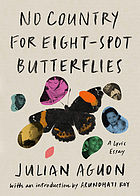For the 22-23 and 23-24 school years the One Book Program will explore Environmental justice.
Environmental justice is the fair treatment and meaningful involvement of all people, regardless of race, color, national origin, nation, or income, with respect to the development, implementation, and enforcement of environmental laws, regulations, and policies.
Environmental justice is based on the principle that all people have a right to be protected from environmental pollution, and to live and thrive in connection with a clean and healthful environment.
We will look at injustices, from colonization to climate change to the disproportionate impacts of hazardous wastes, rising sea levels, warming air and ocean temperatures, and other environmental harms on low-income, immigrant, and communities of color.
We will also look at examples of environmental justice, including indigenous and regenerative farming, decolonizing the outdoors, reforestation and regenerating coral reefs, equitable labor relations, environmental justice in the arts, and environmental movements and resistances.
We highlight many important Environmental Justice issues in this guide, and we acknowledge that we cannot remotely begin to address them all.
This image was created by artist and activist Richard Levins Morales
Morales, R. L. (2006). [Environmental justice tidal wave]. Ricardo Levins Morales Art Studio. https://www.rlmartstudio.com/product/environmental-justice/

This guide was created to feature One Book events and to help us learn more about the complex of issues connected to the One Book.
Use the tabbed pages to connect with a wide variety of sources in the library's print and online collection and on the Web.